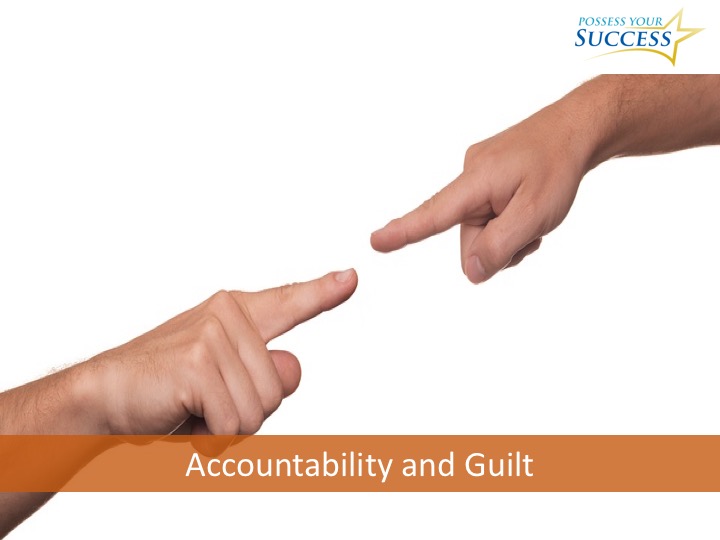Being Accountable and Feeling Guilty
There’s a line between being accountable and feeling guilty. Sometimes it can be easy to see but sometimes it just isn’t as clear. In the years I’ve spent growing my business, I’ve learned that a big chunk of successful entrepreneurship is just hard work. But lately, I’ve been overloaded.
Hard times teach us what we’re made of and I’ve learned some important things about myself during this productivity lull. In trying to be honest with myself, I’ve discovered some important nuances that separate being accountable and feeling guilty.
Being Accountable
One of the tenets of any coaching I give or speaking engagements I do is taking ownership. Ultimately, you have control over your life. All of your decisions and actions belong to you. Things we can’t control happen throughout life but we can control how we react to them. I didn’t ask for everything that life has pitched my way but I take responsibility for it and own the decisions I made that got me there.
Keeping a victim mentality is costly. In my case, in being a victim I would have to focus on the negative consequences of all the things I wanted—a high-paying job, a wonderful wife, a new life in my family, and a business that helps other people succeed. How ungrateful would that be? I would never have attained any of my current circumstances if I had not accepted my role in the failures and struggles I had gone through.
In the past several months, I’ve dealt with overbearing clients at work, sickness and disease in my family, a business that hasn’t gotten the attention it deserves, water damage in my home, and a spike in personal/business expenses. It has been one blow after another but it was something that I had to take responsibility for and—more importantly—I needed to act in order to keep the situation from getting out of control. Being accountable to myself had me keeping closer track of what I was doing with my hours. I found ways to keep my dream reality alive without all the stress. Being accountable is something that helps you manage your workload, over short and long terms.
However, a deeper look into my feelings showed that in my attempt at becoming accountable, I was actually feeling guilty.
Feeling Guilty
A lack of accountability produces a victim mentality. Guilt, on the other hand, produces something entirely different. Unfortunately, the more I thought about how I was acting, the more I started feeling guilty about it. In overcommitting, I felt like I wasn’t performing to my highest standard. But then there are so many other problems, like hurricanes or wildfires or the Las Vegas shooting. I wasn’t entitled to feel bad when I was so much better off—but that thought only made me feel worse!
I had to stop and put the negativity on pause. What was I feeling guilty about? Things are always worse for someone else. And I had still managed to maintain most everything. I was putting energy into being better. The bad thoughts and feelings weren’t helping me succeed—they were only holding me back.
Not that you should avoid all guilt—if your actions hurt other people, you need to evaluate that and figure out how to do better. But we tend to put a lot of blame on our shoulders when really, we just need to strategize better. Failure is, sadly, an inevitable part of risk-taking. Feeling guilty about failure is just wasting time—you should be using that energy to analyze and realistically look at the flaws of your plan. Being accountable for the sticking points is a positive step towards a better future.




